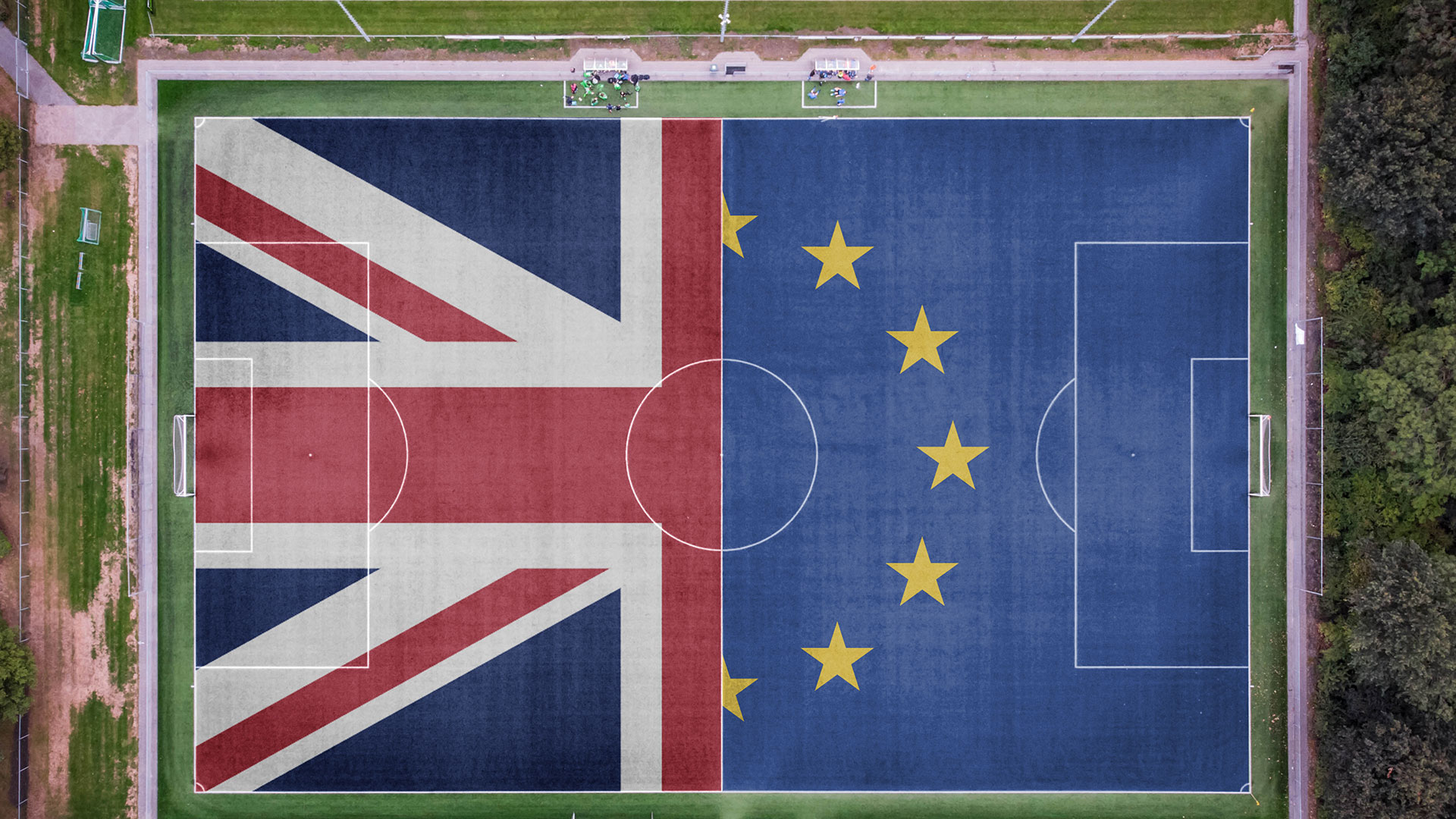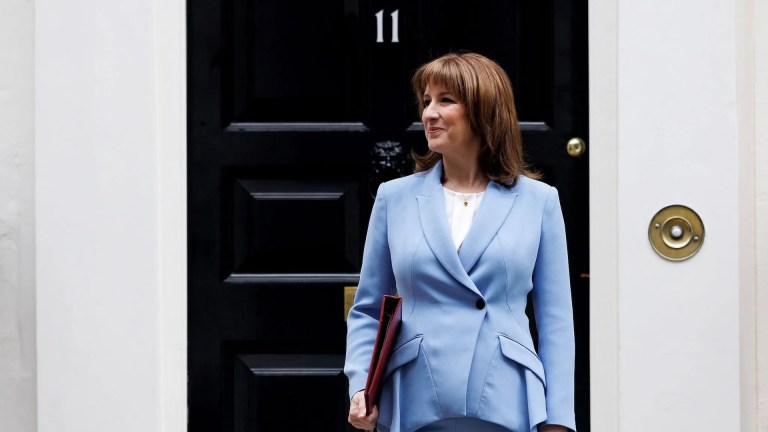Another critical part of healthcare are carers who provide vital support for disabled, vulnerable and elderly people. There are 104,000 care jobs filled by EU nationals at the moment. If these workers move on they will be difficult to replace, given that there are already 110,000 carer vacancies in the UK.
Carers bring into focus a flaw in the government’s immigration plans that prioritise skilled over low-skilled workers,with the Migration Advisory Committee (MAC) suggesting a £30,000 salary threshold. Because people who are skilled are always that well-paid, right?
“Care work is low-paid, not low-skilled, so it is quite wrong that it is being caught by the new rules proposed by the MAC,” says Caroline Abrahams, charity director at Age UK. “The social care workforce is already struggling but if, after a UK withdrawal, we shut the door on staff from the EU we’ll make a bad situation even worse.”
Another industry crucial to the country is the one responsible for building new homes and infrastructure. Alan Vallance, chief executive of The Royal Institute of British Architects (RIBA), shares his concerns about the impact of Brexit with The Big Issue.
“Solving the housing crisis is a priority for UK government, but they will only be able to do that if they can draw on the skills and talent of European nationals across the construction industry,” he says. “A £30,000 salary threshold would be a disaster, locking out talented architects at the start of their career, and damaging the ability of the UK to produce a better built environment for everyone.”
Statistics show that there are around 8,000 architects from the EU working in the UK, but the number of new registrations with the Architects Registration Board from EU nationals dropped by 42 per cent between 2016-18. RIBA’s own research shows that 47 per cent of EU nationals have considered leaving the UK since the referendum.
Advertising helps fund Big Issue’s mission to end poverty
Some may choose to leave but others may not be able to access the process required for them to stay. Monika Slowikowska, director of construction company Golden Houses, warns of the challenges facing her workers.
“Many of my employees who would need to apply for the EU settlement scheme don’t even have an email address, let alone a smartphone with the right operating system and features,” she says. “They are just not used to this level of digital technology in their lives and the government cannot give tech-savvy applicants special treatment. Based on what I have read and understood, I know that 80 to 90 per cent of my employees would not be able to complete the EU settlement scheme process and would need help.”
Richard Beresford, chief executive of the National Federation of Builders, tells The Big Issue that more needs to be done to avoid massive disruption in the sector.
“The government appears to recognise that a construction-specific visa is needed for the industry to plug the gap. However, no announcements have been made on whether one will be implemented,” he says. “With almost half of construction employees being self-employed, there are real concerns that many projects may stop or stall.”
Ten per cent of construction employees who work on buildings across the UK are from the EU, but this number climbs to 28 per cent in London.
“The greatest danger to industry is probably outside the capital, as we expect London to offer more competitive wages and draw in non-London-based workers. This will put many projects outside the capital in difficulty,” Beresford continues.
Advertising helps fund Big Issue’s mission to end poverty
He also says the industry is not set up to allow British nationals to fill all the vacancies.
“If we want to increase the number of construction workers trained in the UK, we must enable more small and medium-sized constructors to win a pipeline of work and not one-off jobs,” Beresford says. “SMEs train more than two thirds of construction apprentices, yet build less than a third of the UK’s housing. In London, SMEs build less than 20 per cent of homes and the construction skills crisis is particularly acute.
“With 400,000 people expected to retire from the industry in the next decade and too few apprentices starting courses, 20,370 last year, a construction visa is necessary.”
Construction and healthcare are vital to the success of society where changes are being keenly felt, but all industries will be impacted in unpredictable ways, and continuing constitutional chaos is not helping.
“It’s a cliche but true – one thing businesses hate is uncertainty,” says Gerwyn Davies, senior labour market analyst at the Chartered Institute of Personnel and Development (CIPD).
“The two things they are most concerned about is access to the single market, and where they are going to find the people.”
Advertising helps fund Big Issue’s mission to end poverty
Nobody in the entire continent can shed much light on the first issue, but there are two solutions for the future of recruitment. Either UK nationals fill the gaps or the immigration system will be changed.
“There are many hidden benefits to Brexit potentially,” Davies says. “One is the increase in training expenditure that could result from it, another is a rise in pay and opening up the labourmarket to more disadvantaged groups.
“For instance, I spoke at an event recently where the chief exec of an ex-offenders’ charity said Brexit is the best thing that’s ever happened because it’s opened so many doors for us to try and get employment opportunities. That is consistent with the feedback I’ve had from employers directly. There could be a potential upside.”
The CIPD welcomed aspects of the MAC report that suggested a streamlining of the existing system used to process non-EU recruits (ditching required sponsorship licences, health surcharges, skills levy and other fees) and the abolition of the cap on skilled workers from outside the EU, currently limited to 20,700 per year.
“While migration restrictions will undoubtedly place more pressure on employers across the board, what hasn’t been acknowledged is that they’re reviewing the whole system, which essentially makes recruiting non-EU workers a lot easier,” Davies says. “Currently you have to have a graduate-level job to recruit non-EU. That looks set to come down to A-Level and opens up an enormous number of jobs. Overall, you could see the flow of EU nationals slow but be at least partly compensated for by a higher number of non-EU nationals.”
Advertising helps fund Big Issue’s mission to end poverty
This is already happening. The number of EU-born workers in the UK increased by 148,000 in 2016 but by just 7,000 the following year – a 95 per cent drop in the number of new EU arrivals. Meanwhile the number of migrants from south Asian countries jumped by 30 per cent last year, with more than 45,000 people from India registering a national insurance number, making that country the third largest source of new migrants to Britain (after Romania and Poland).
Davies points out that the government looks set to introduce a youth mobility scheme that will give all EU citizens aged 18 to 30 the right to live and work in the UK for up to two years without needing a job offer (an extension of the programme that allows Australians to take bartending gap years). This could potentially ease any impact felt in the hospitality and service industry, which currently employs a high number of EU workers – if the UK is still seen as an appealing place in which to live and work post-Brexit.
But going back to the recordbreaking year of 2015 when over a quarter of a million EU migrants came to the UK, even then that figure was eclipsed by the number of immigrants from other parts of the world, which reached 279,000 (combined net immigration for 2015 was 332,000, in 2018 this fell to 283,000).
In other words, the majority of migrants, even around the time when immigration dominated conversation ahead of the Brexit vote, came from outside of the EU so had nothing to do with the freedom of movement system.
The Migration Observatory, which measured the benefits of EU migrants, documents that the net fiscal contribution of EEA migrants in 2016/17 was £4.7bn, compared to a net cost of £9bn for non-EEA migrants. There are numerous reasons for the discrepancy – for example EU workers tend to be younger, without children – but the proportion of non-EEA migrants is already increasing and will continue to grow.
The Home Office’s Future skills-based immigration report states that “changes for skilled workers could result in an 80 per cent reduction of inflows of long-term workers from the EU and the European Economic Area”. Prime Minister Theresa May said: “This will be a system where it is workers’ skills that matter, not which country they come from. It will be a single system that welcomes talent, hard work and the skills we need as a country.”
Advertising helps fund Big Issue’s mission to end poverty
So who will fill the skills gap? British jobs for British nationals, if employment conditions become more attractive (flexible hours, for example) and enough training schemes are put in place to prepare people to work in the sectors that need workers. But also a higher proportion of migrants from outside the EU. Instead of a Polish plumber, it’s just as likely they’ll be from the Philippines.
Largely white, culturally congruent Europeans will be replaced by a much more diverse pool of immigrants who ‘join the queue’ from all over the world. Of course, amid all the uncertainties of Brexit, one thing has always been clear: nobody at all voted the way they did for xenophobic reasons or because they were a little racist. Definitely not. And so everyone will, without a doubt, welcome the increasingly multicultural face of immigration that Brexit inevitably brings.









